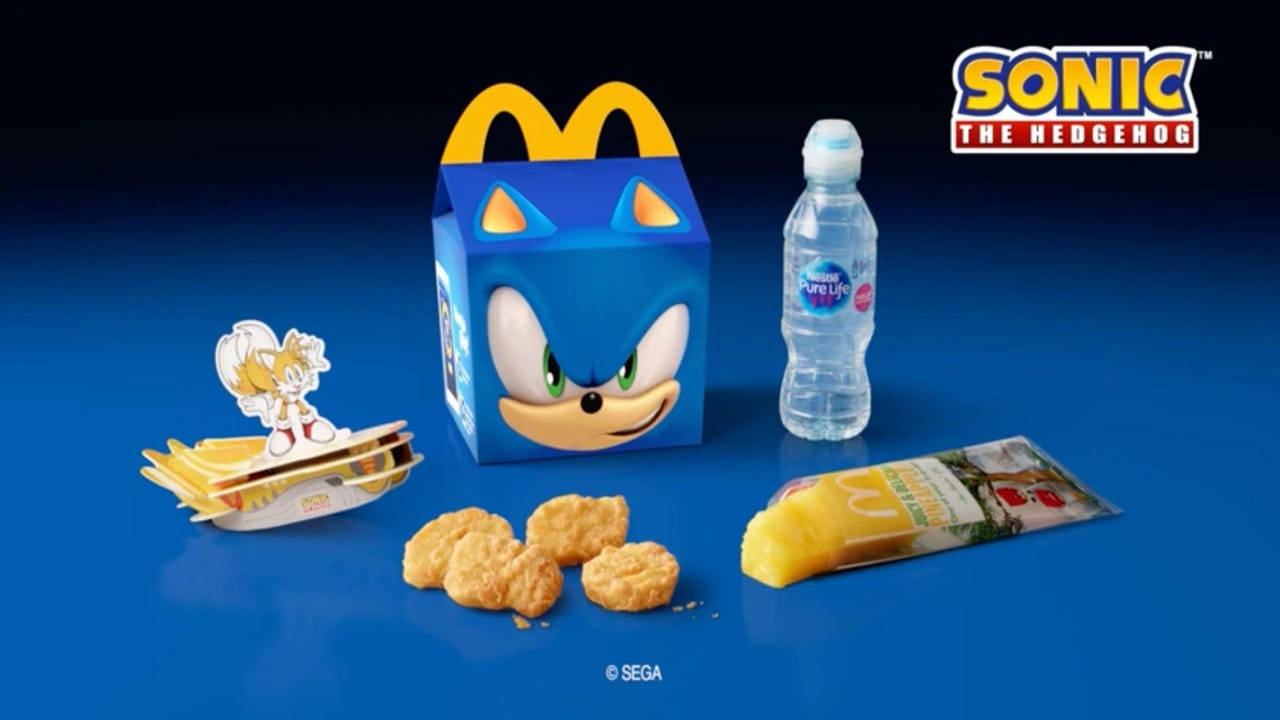McDonald’s are in the French news again as a symbol of all that is invasive and alien in American culture. It’s hoped that a boycott, directed at all US brands but particularly at the Golden Arches, will dramatise resistance to the policies of Emperor Donald the First.
Take-up so far is patchy but the weather hasn’t been favourable to manifs. At the first spell of sunshine you can be sure the protesting classes will hit the boulevards and the hee-haw of the CRS militia vans’ sirens will once again be heard in the land.
In their place, I wouldn’t bother. The invasion is so comprehensive that nothing can reverse it. Operation Big Mac is now set on conquering France profonde, opening branches in villages and touting them as a substitute for the traditional local café.
One weapon in their arsenal, according to a report in Britain’s Guardian, is “a ‘playbook’ of questionable arguments and tough tactics to force local councils to approve applications to open branches.” In one case, McDo claimed provision of a climbing frame would encourage “physical activity” and “healthier lifestyles”. Customers would also “be able to order coffee, salad and meals containing fewer than 400 calories.”
“Children,” they suggest, “are likely to visit the restaurant with a supervising adult who can support the child to make responsible food choices.” Now that could be true. Our daughter used to enjoy McDo’s “Happy Meals”. She’d keep the cardboard box, disassemble the burger, retaining only the beef patty, and put everything else in the bin. Even at five years old, something told her there was as much nutritional value in the box and wrapping paper as in what she ate.
In Britain, McDo threatened to sue local councils for repayment of legal costs because they had acted “unreasonably” in refusing their applications. These methods are nothing new. They failed in a first attempt to set up in France. Their research suggested the French would never take to the hamburger, so when entrepreneur Raymond Dayan asked for the franchise, they agreed to a royalty of only 1.5 percent of his turnover, instead of the usual 10 to 20 percent.
Shrewdly, Dayan opened his first branch on the Champs-Élysées, adjacent to Le Drug Store, hangout of millionaires and movie stars. Once the jeunesse dorée embraced the Big Mac, everyone was eager to try one. By 1979, he had 14 establishments that sold almost twice as much as in any other country. After a dirty-tricks campaign that did everything possible to force him out of business, he sold out in 1982. The official McDonald’s history doesn’t mention him.
As John Travolta explains in Pulp Fiction, McDo’s Quarter-Pounder wouldn’t fly in metric air, and had to be renamed. The product, however, remains largely the same. A McDo competitor used to advertise its product with the slogan “Have It Your Way”, encouraging clients to customise the Whopper to suit their taste. But that was in peace time. This is war. No more Burger King. Meet Burger Tsar, its slogan “Have It Our Way!”





I've been reading about this too and, at the same time, about the surge of "boulangeries" that are not only bakeries in the true sense of the term, but also cafés, sandwich shops, and/or fast-food joints. There was a great program on France Inter last week citing that 17% of meals taken outside of the home in France are now eaten in "bakeries."
The program also pointed out that these establishments are now the biggest competition for McDonald's -- stronger than other fast food chains.
So, to sum it up, I think by moving into smaller towns and villages, "McDos" are desperately looking for new markets. Time will tell if it works.
The sad truth here this is that all PR is good PR. The french love MacDo and it's central to the way the french eating habits have changed over the last 30 years.
Don't be fooled by the fake shock horrer of the media.
Consumers are voting with their feet and their euros.
I explored some of the numbers here if your interested
https://eatlikethefrench.com/how-the-french-eat-in-2025/